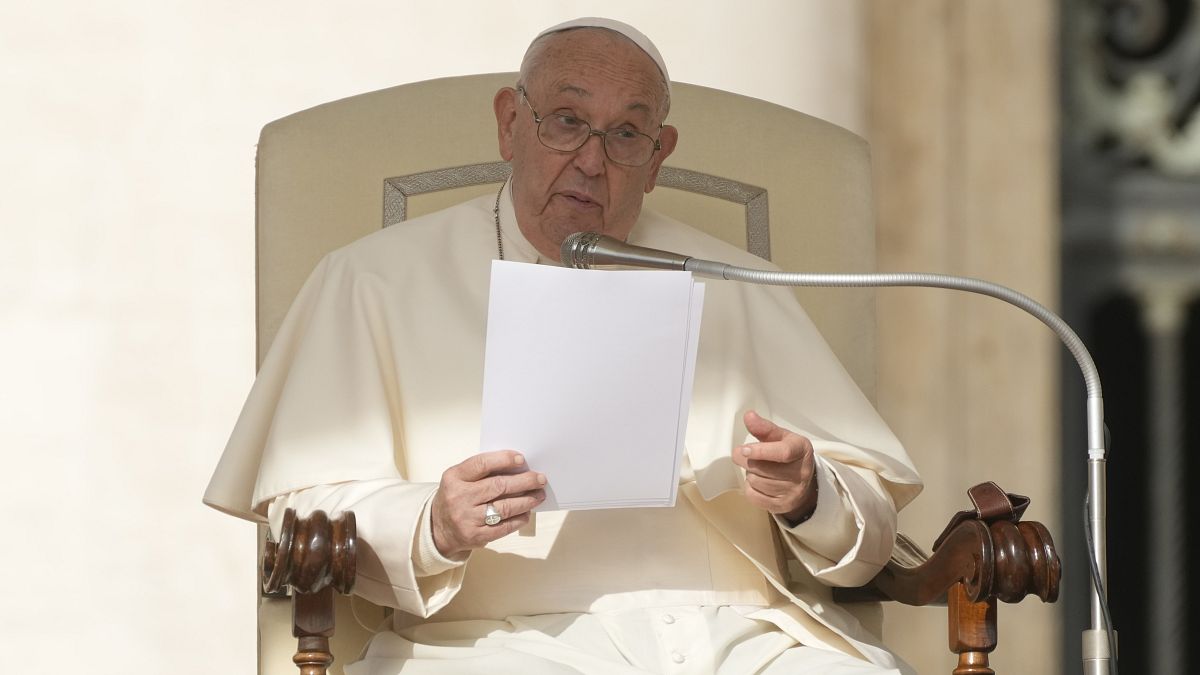Pope Francis recently expressed his solidarity with the Lebanese people during a speech at the Vatican, where he urged the international community to prevent further escalation of the conflict in the Middle East. The Pope described the current situation in Lebanon as “unacceptable”, highlighting the suffering endured by the Lebanese people in the recent past due to heightened tensions between Israel and Hezbollah. The United Nations reported that over 90,000 Lebanese citizens have been displaced since Monday, contributing to a total of more than 200,000 internally displaced individuals in the country. Additionally, at least 15 people were killed and numerous others injured in Lebanon on Wednesday as a result of ongoing military strikes.
Amidst the escalating conflict in Lebanon, Pope Francis also requested prayers from the faithful at the Vatican in advance of his upcoming trip to Belgium and Luxembourg. Despite cancelling previous engagements due to a mild illness, the pontiff is determined to proceed with his travel plans. Once in Belgium, Pope Francis will confront the country’s history of clerical sex abuse and institutional cover-ups, as well as meet with survivors of abuse to address their concerns. The visit represents a more solemn occasion compared to his recent tour of Asia, where he encountered enthusiastic church communities and record-breaking crowds.
The Pope’s planned visit to Belgium and Luxembourg has garnered attention from abuse survivors, who have issued an open letter to Francis calling for a universal system of church reparations and a recognition of the impact of abuse on their lives. During his four-day trip, which commences on Thursday, Pope Francis is scheduled to meet with 15 survivors to address their grievances and discuss avenues for healing and reconciliation. This focus on acknowledging and addressing the issues of clerical sex abuse represents a significant departure from the traditional celebrations and commemorations that typically accompany papal visits.
The escalation of conflict in Lebanon continues to draw global concern, with the European Union’s foreign policy chief also urging for calm and warning of the potential for a full-fledged war. The ongoing military strikes between Israel and Hezbollah have resulted in a significant number of casualties and displaced individuals, further underscoring the urgent need for peace and stabilization in the region. Pope Francis’s call for international intervention and support for the Lebanese people reflects a broader effort to address and mitigate the impact of conflict and humanitarian crises in the Middle East.
As Pope Francis prepares for his journey to Belgium and Luxembourg, he remains steadfast in his commitment to engaging with the community and addressing pressing issues such as clerical sex abuse. The Pope’s willingness to meet with abuse survivors and discuss reparations signifies a proactive approach to healing and reconciliation within the Church. By prioritizing the needs and concerns of those impacted by abuse, Pope Francis seeks to foster a culture of accountability and healing that can serve as a model for addressing similar issues within the global Catholic community.
In conclusion, Pope Francis’s recent statements and actions underscore the importance of addressing conflict and humanitarian crises with compassion, solidarity, and a commitment to justice. The ongoing situation in Lebanon and the Pope’s upcoming visit to Belgium and Luxembourg highlight the need for continued efforts to promote peace, healing, and reconciliation in regions impacted by violence and abuse. By engaging directly with survivors and communities affected by these issues, Pope Francis demonstrates a dedication to listening, acknowledging, and responding to their needs in a spirit of compassion and accountability.











